
Undergoing plastic surgery is an important decision, but the journey doesn’t end once the procedure is completed. Proper post-surgery care is essential for ensuring a smooth recovery, minimising complications, and achieving the best possible results. Whether you've had a facelift, breast augmentation, or liposuction, following your surgeon’s post-operative instructions is key to a successful outcome.
1. Follow Your Surgeon’s Post-Operative Instructions
The most important step in your recovery is to closely follow the post-operative instructions provided by your surgeon. Every surgery is different, and your surgeon will give you a personalised recovery plan based on your procedure and overall health.
- Wound Care: Keep the surgical site clean and dry. Your surgeon may give you specific instructions on how to change bandages and care for any incisions to prevent infection.
- Medication: Take any prescribed medications, including pain relievers and antibiotics, as directed. This will help manage pain and reduce the risk of infection.
- Activity Restrictions: Follow your surgeon's recommendations regarding physical activity. Avoid heavy lifting, strenuous exercise, or any activities that could disrupt the healing process.
2. Rest and Take It Easy
Rest is key in the days and weeks following surgery. Your body needs time to heal, and overexerting yourself too soon can slow down the recovery process or cause complications.
- Plan for Downtime: Arrange for time off work, household chores, and social engagements for at least a week or more, depending on the type of surgery.
- Elevate When Necessary: For procedures involving facial or body contouring, your surgeon may recommend keeping the affected area elevated to reduce swelling. For example, after a facelift or eyelid surgery, keeping your head elevated can help minimise swelling and bruising.
3. Eat a Healthy, Nutrient-Rich Diet
A nutritious diet is essential for a smooth recovery. Eating the right foods can help speed up the healing process, reduce inflammation, and give your body the energy it needs to heal.
- Focus on Protein: Protein-rich foods like chicken, fish, eggs, and tofu support tissue repair and muscle recovery. Protein is vital for wound healing and overall recovery.
- Include Fruits and Vegetables: Fresh fruits and vegetables are packed with vitamins and antioxidants that reduce inflammation and promote healing. Vitamin C, in particular, is great for repairing tissues and boosting collagen production.
- Stay Hydrated: Drink plenty of water throughout your recovery to keep your body hydrated and to help flush out toxins. Hydration also aids in reducing swelling and promotes healthy skin.
4. Avoid Smoking and Alcohol
Smoking and alcohol can interfere with your recovery by slowing down the healing process and increasing the risk of complications. Smoking constricts blood vessels, limiting the oxygen supply to your tissues, which can delay wound healing. Additionally, smoking can increase the risk of scarring and other complications, particularly in procedures like facelifts and tummy tucks.
5. Manage Swelling and Bruising
Swelling and bruising are common after plastic surgery, but there are several steps you can take to lessen their impact and speed up your recovery.
- Cold Compresses: Applying ice packs or cold compresses to the treated area can help reduce swelling and discomfort, particularly in the first 48 hours. Make sure to follow your surgeon’s instructions to avoid over-icing.
- Wear Compression Garments: For procedures like liposuction, tummy tucks, or breast surgeries, your surgeon may recommend wearing compression garments to support the healing process, reduce swelling, and maintain your new body contours.
- Elevate the Affected Area: Keeping the treated area elevated can help improve circulation and minimize fluid buildup, especially for facial surgeries or procedures involving the limbs.
6. Keep Moving, But Avoid Strenuous Activity
While rest is essential, gentle movement can help improve circulation and prevent complications like blood clots.
- Short Walks: Once you are able, try to take short, gentle walks around your home. This helps improve blood flow and reduces the risk of complications like deep vein thrombosis (DVT). Walking also helps reduce stiffness and keeps your body active.
- Avoid Strenuous Exercise: Wait until your surgeon clears you to resume exercise. Lifting heavy weights or doing intense workouts too soon can strain your body and interfere with healing.
7. Protect Your Skin from the Sun
After surgery, your skin is more sensitive and prone to damage, especially in areas with incisions or scars. Sun exposure can darken scars and prolong the healing process, so it’s important to take extra precautions.
- Apply Sunscreen: Use a broad-spectrum sunscreen with SPF 30 or higher on any exposed skin, particularly if your surgery involves facial procedures. Apply sunscreen every time you go outdoors to protect your skin from harmful UV rays.
- Cover Up: Wear protective clothing, sunglasses, and hats to shield your skin from the sun when you’re outside, especially in the early stages of recovery.
- Avoid Direct Sun Exposure: Try to limit sun exposure, especially during peak hours when the sun is strongest, as this can worsen scars and delay healing.
8. Attend All Follow-Up Appointments
Follow-up appointments with your surgeon are essential to monitor your progress and ensure everything is healing as expected. These appointments allow your surgeon to assess your recovery, remove stitches if necessary, and address any concerns or complications that may arise.
- Monitor Healing: During follow-up visits, your surgeon will check the incisions, discuss any swelling or bruising, and offer advice on further post-surgery care.
- Address Concerns Early: If you experience unexpected side effects, such as excessive pain, unusual swelling, or infection, don’t wait for your next appointment. Contact your surgeon immediately to address any concerns.
9. Stay Patient and Positive
Healing from plastic surgery takes time, and the final results won’t be visible right away. Swelling, bruising, and discomfort may linger for several weeks, and it can take months for your body to fully heal.
- Manage Expectations: Understand that your results will gradually improve over time. Don’t be discouraged if you don’t see immediate changes. Follow your post-operative care routine and trust the process.
- Stay Positive: Recovery can be a slow process, but maintaining a positive mindset will help you get through the tough days. Focus on the long-term benefits and how your procedure will enhance your confidence and overall well-being.
Tip: Keep before-and-after photos to track your progress. This can help you stay motivated as you watch your body transform during the healing process.
A smooth recovery after plastic surgery depends on diligent post-surgery care and following your surgeon’s advice. If you have any concerns during your recovery, don’t hesitate to contact your plastic surgeon.

FAMS (Plastic Surgery)

FAMS (Plastic Surgery)

Paragon
#13-01/2/3/4/5/6 Paragon
+65 6690 2471



